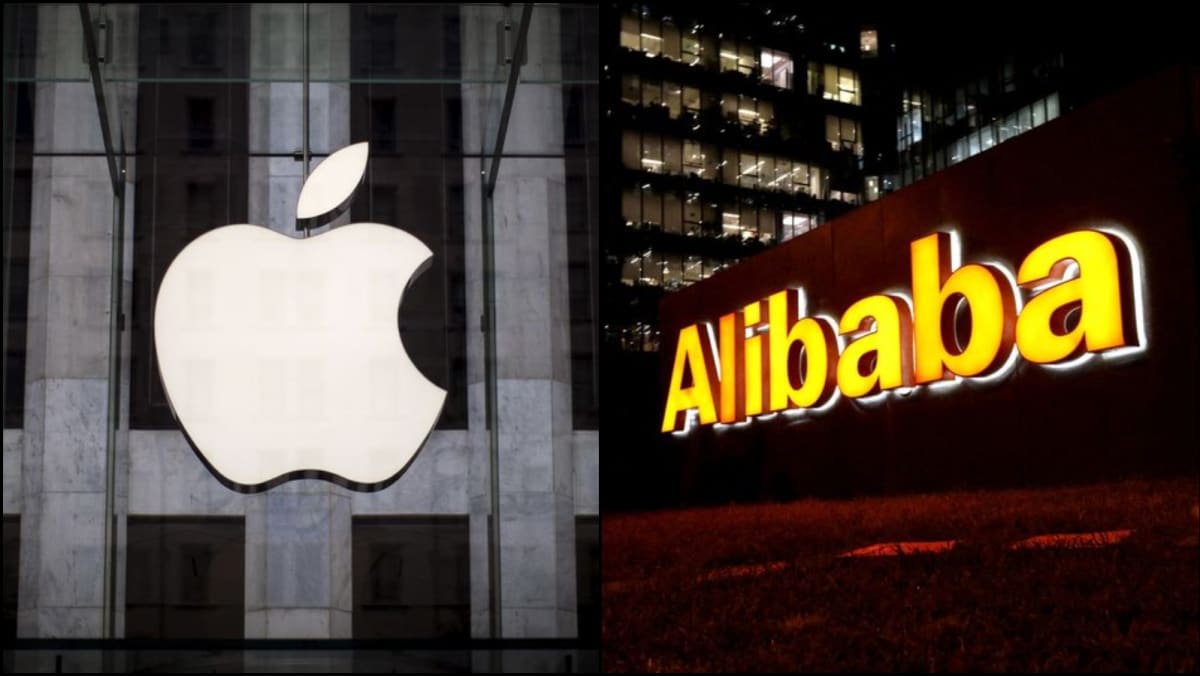Asia
Commentary: Alibaba won’t solve all of Apple’s China problems

Introduction: The Rising Tensions Between the U.S. and China
The escalating tensions between the United States and China have far-reaching implications, and one of the most visible battlegrounds is the tech industry. Apple, one of the few American tech giants still operating in China, finds itself caught in the crossfire of anti-American sentiment. As geopolitical tensions intensify, Chinese consumers are increasingly turning to domestic brands like Huawei, which are already leveraging cutting-edge technologies such as artificial intelligence (AI). This shift poses a significant challenge for Apple, which has long dominated the global smartphone market but is now seeing its position erode in one of its most critical markets.
The Backlash Against Apple in China
The anti-American sentiment in China has manifested in a noticeable shift in consumer preferences. Chinese buyers are gravitating toward homegrown brands, and companies like Huawei are capitalizing on this trend by offering advanced AI features in their products. This movement is not just about patriotism; it’s also driven by the growing sophistication of Chinese tech companies. For Apple, this is a double blow. Not only is it losing market share to domestic competitors, but it’s also facing a broader decline in its global smartphone dominance. Tim Cook, Apple’s CEO, has acknowledged the challenges, describing China as “the most competitive market in the world.”
Huawei’s Rise and the Competitive Landscape
Huawei’s emergence as a dominant player in the smartphone market has compounded Apple’s struggles. Once the undisputed leader, Apple has seen its position slipping as Huawei and other Chinese brands gain ground. The competitive landscape is now dominated by Chinese companies, with Huawei leading the charge. This is a seismic shift in a market that was once heavily influenced by American tech giants. The rise of Huawei is not just about market share; it’s also about technological innovation. With AI features already integrated into their products, Chinese companies are setting a high bar for competitors like Apple.
Navigating the Complexities of U.S.-China Relations
Apple’s challenges in China are further complicated by the need to navigate the delicate relationship between the U.S. and China. The company must find a way to appease multiple stakeholders: the Trump administration, the Chinese government, and Chinese consumers. This is no easy feat, as each group has its own set of demands and expectations. On one hand, Apple must comply with U.S. regulations and maintain its reputation as an American company. On the other hand, it needs to demonstrate its commitment to the Chinese market and its respect for Chinese consumers.
Tim Cook’s Strategic Vision
Despite the challenges, Tim Cook has emerged as a key figure in navigating these complexities. His ability to manage U.S.-China relations with a combination of shrewdness and diplomacy has been remarkable. Cook’s approach is encapsulated in the biblical saying, “wise as a serpent and harmless as a dove.” He has maintained a strong connection with Chinese consumers, even going so far as to have an active Weibo account, where he engages directly with the Chinese public. This level of engagement is rare for a U.S. business leader and reflects Cook’s understanding of the importance of building trust in the Chinese market.
The Path Forward: Strategic Moves and Innovation
One potential strategy for Apple to regain its footing in China is to bring its AI capabilities to the market. This could help the company differentiate itself from domestic competitors and appeal to the tech-savvy Chinese consumer. However, this is just one piece of the puzzle. Apple must also find innovative ways to address the broader challenges it faces in China, from navigating geopolitical tensions to competing with formidable domestic brands. The road ahead will require a combination of technological innovation, strategic partnerships, and a deep understanding of the Chinese market.
Conclusion: Apple’s Crucial Role in the U.S.-China Tech Rivalry
As the U.S.-China rivalry continues to escalate, Apple finds itself at the center of a high-stakes game. The company’s success in China will depend on its ability to balance the demands of multiple stakeholders while continuing to innovate and adapt to the ever-changing landscape. With Tim Cook at the helm, Apple has a leader who is uniquely suited to navigate these challenges. Whether through leveraging AI technology or deepening its connection with Chinese consumers, Apple’s next moves will have far-reaching implications not just for the company, but for the broader tech industry and the U.S.-China relationship.
-

 Tech7 days ago
Tech7 days agoBlack Ops 6 Quad Feed and New Valentine’s Day Modes Are Live Now
-

 Tech11 hours ago
Tech11 hours agoCanon’s New Camera Is in a Category Once Thought Practically Dead
-

 Tech6 days ago
Tech6 days ago‘The White Lotus’ Season 3: Release Schedule and How to Watch
-

 Entertainment5 days ago
Entertainment5 days agoKhloe Kardashian Says Mom Kris Jenner ‘Gets Mad at Me’ for Wearing ‘Baggy Sweats’ Out of the House
-

 Australia7 days ago
Australia7 days agoWorld of photos, February 16, 2025
-

 Money5 days ago
Money5 days agoCal Newport’s Productivity Hack That Can Also Help You Escape Financial Burnout
-

 Tech6 days ago
Tech6 days agoBest Internet Providers in Cincinnati, Ohio
-

 Sports2 days ago
Sports2 days agoChargers to play 2025 regular season opener in Brazil









